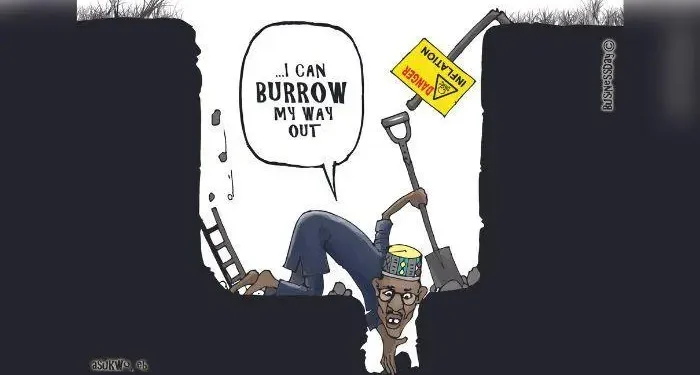Re-elected and elected governors have expressed concern regarding the country’s enormous debt burden. They also questioned the World Bank, asserting that the multilateral institution should have raised the alarm about Nigeria’s rising debt profile. These remarks were made in response to a World Bank presentation at a seminar for newly elected and re-elected governors. In a presentation at the orientation seminar, a World Bank representative urged the governors to be wary and cautious of the country’s rising debt profile.
The governors who spoke on the sidelines of the seminar, however, stated that the World Bank and other donor organisations should have raised the red flag on the mounting debt. When asked to comment on the World Bank’s warning about the country’s mounting debt profile, the re-elected governor of Bauchi State, Bala Mohammed, told reporters, “I honestly do not understand what the World Bank is doing.
In addition to providing us with grants, SFTAS assistance, and of course loans, the government also provides us with loans. They must be capable of raising a red flag. “They should be able to inform the economic managers that we cannot continue borrowing indefinitely.” Our debt service obligation is approximately 95% of revenue. Consequently, the states are influenced by this macroeconomic reality. “The proceeds from oil are not divided. And yet, we’re here to celebrate success? Unless we correct our own perceptions and approaches to the administration of the nation’s economy, we are doomed to fail. “It is a monolithic economy, yet we have taken so much money up front even where we are receiving money. The Federation must be viewed as a structure because nations must have a voice in economic management.
The governor of Bauchi state said. In response to why the World Bank did not warn Nigeria, the incoming governor of Benue State, Rev. Fr. Hycent Alia, stated, “I’m not positive if they did or did not. I’m certain, however, that as a responsible international financial organisation, they would have been able to convey to the administrators of our economy that the situation has reached a critical point. “I wish to believe that no such warnings have been issued. However, regardless of what they did or did not do, we owe it to ourselves to recognise that there is a red flag without the World Bank telling us so. “If we appoint the proper individuals, we should be able to determine that all is not well. “I believe that as a people, even the average citizen understands that we must act swiftly to resolve this issue. When asked how he would address the elevated debt profile, the incoming governor of Plateau State, Caleb Mutfwang, stated, “This is both a national and subnational issue.
As members of the National Economic Council, we will collaborate with the federal government to develop the appropriate policies to reverse our debt situation. “And of course, reversing debt is not rocket science; to be able to pay off your debts, you must generate wealth and earn more money. Therefore, we must examine means of national wealth creation.” Governor-elect of Katsina State, Dikko Umar Radda, stated that his top priority upon taking office would be to address the state’s security issue. According to the incoming governor of Katsina, “we have a very severe security issue that requires substantial resources to address. And then, I believe the most essential thing we must do is examine the state’s overall financial situation. We would examine the state’s debt profile and determine how to restructure it so that we could meet all of our obligations.


